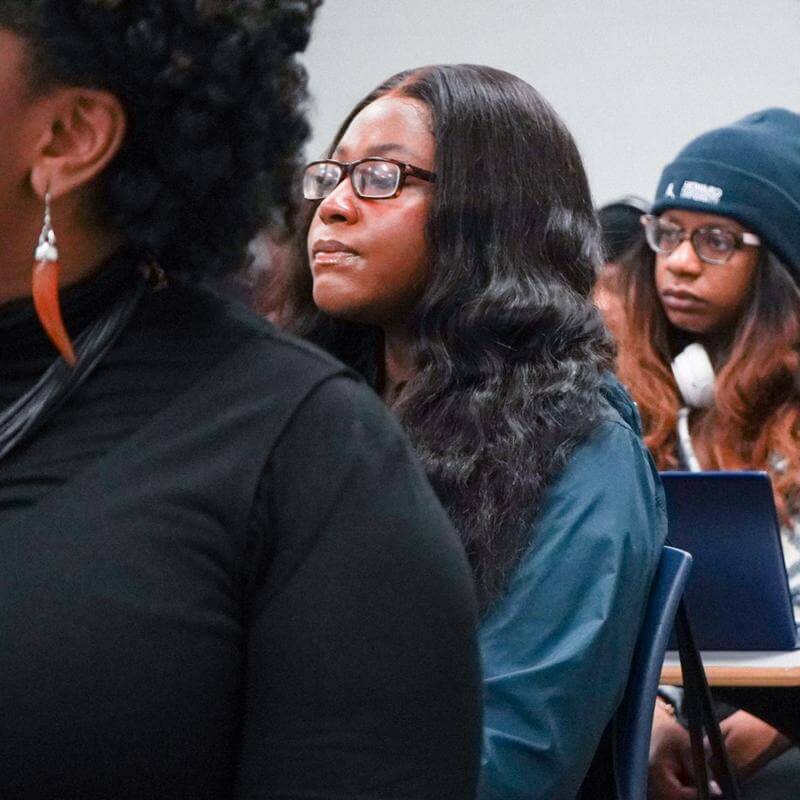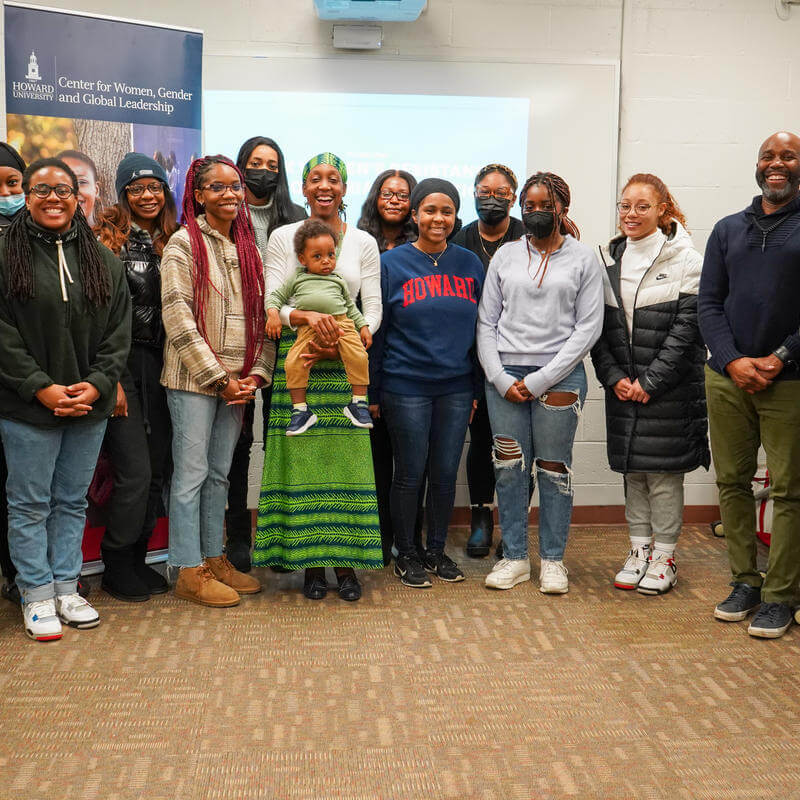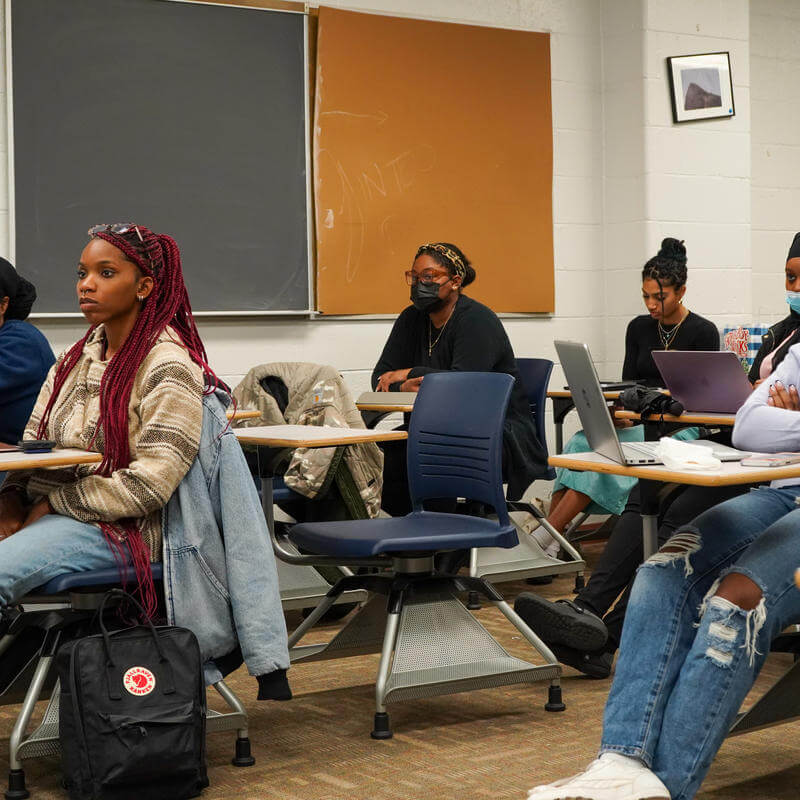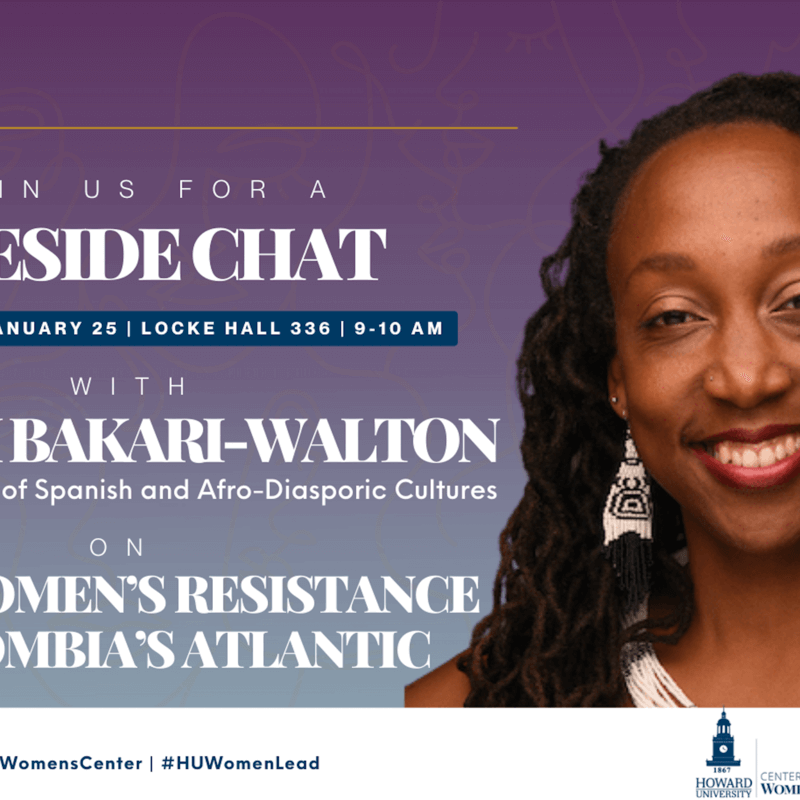Black Women's Resistance in Colombia's Atlantic
On Wednesday, January 25, 2023, in Locke Hall, we hosted a fireside chat with Dr. Mesi Bakari-Walton, assistant professor of Spanish and Afro-Diasporic Cultures.
As a Fullbright Scholar with a great interest in Afro-Colombian communities- specifically with a rich history but lacking in scholarly publications, videos, and books- Dr. Mesi Bakari-Walton aims to positively highlight the rich culture and voices of the Black communities in Columbia, their resistance, the ways they preserve their culture and how they triumph.
The inspirational hybrid discussion revolved around the forms of collective resistance in the African liberation spaces of the Montes de María region of Colombia. Dr. Bakari-Walton dove into the dynamics of her research, exploring how Afro-diasporic cultures portray symbols of identity and survival tools through cultural texts of music, song, dance, language, and other practices.
She expressed her curiosity regarding how Afro-Columbians identified as black— Afro-Columbian, Black, Palenquero, and Raizal— leading her to examine the experiences and history of Afro-Columbian persecution. She explained, “The continued racism and discrimination blocks much of the growth of these communities, yet the collectives create ways to be visible through art for healing, traveling to share their stories, creating art from refuse in a display of the harm happening to the fishing industry.”
The collectives of Montes de María, Dr. Bakari-Walton continues, “formed for the same reasons that connect them beyond their geography: because they are disenfranchised, and one solution is to continue in their ancestor’s path of resisting the ideals and standards of racism, classism, colorism, and sexism.” Their resistances may differ in mode but share commonalities in objectives. As she details her personal experiences meeting each group, Dr. Bakari-Walton shares slide featuring women, fishermen, and collective artwork.
Before opening the floor for questions, Dr. Bakari-Walton shared how her research and community with the Afro-Columbians impacted her research and shaped her overall view on Black resistance.
We are beyond grateful to Dr. Bakari-Walton for taking the time to speak with us and for sharing her knowledge and experiences.




